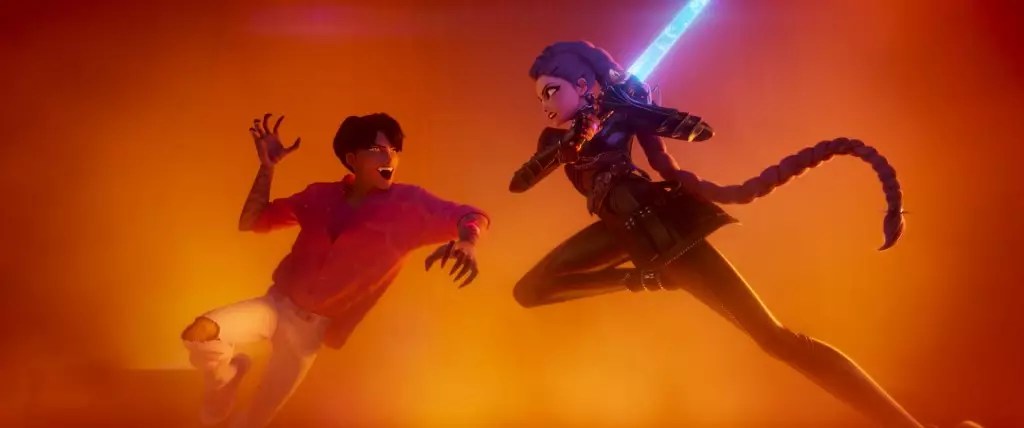The upcoming Infinity Festival stands as a testament to the unstoppable momentum of innovation within the entertainment industry. This year’s theme, “Innovators in the Age of Change,” boldly embraces the rapid evolution of technology and storytelling, positioning the festival as a crucible of visionary ideas. Unlike traditional industry meets, the event seeks to merge entertainment with cutting-edge advancements, fostering an environment where creativity and technology collide to craft the future. From behind-the-scenes looks at blockbuster animation to groundbreaking virtual festival experiences, Infinity Festival underscores the undeniable importance of reimagining how stories are told and experienced.
What sets this event apart is its strategic focus on the intersection of arts, science, and technology. It aims to dismantle the silos that have historically separated these disciplines, emphasizing that only by blending them can the industry truly evolve. This approach challenges the starry-eyed notion that innovation is solely about flashy tech; instead, it underscores the potential for these tools to deepen emotional resonance, create immersive worlds, and redefine audience engagement. The inclusion of high-profile figures from Sony Pictures Animation, Dolby Laboratories, Nvidia, and artificial intelligence sectors highlights a collective desire to push boundaries beyond conventional storytelling.
Transformative Collaborations That Signal New Horizons
One of the festival’s most anticipated features is an exclusive behind-the-scenes look into the making of KPop Demon Hunters, a vibrant animated project that demonstrates how cultural crossover and technological mastery combine to produce global hits. With details unveiled by industry veterans like Michelle Wong, Jacky Priddle, and Josh Beveridge, the session promises insight into the work behind Netflix’s blockbuster animated film. This isn’t just about animation techniques but about storytelling that resonates with international audiences and employs technological innovations such as visual effects, character animation, and perhaps even AI-enhanced production methods.
Similarly, the partnership between Tomorrowland and Sphere Entertainment is a clear indication of how festival organizers are rethinking live music in an era dominated by virtual experiences. Their joint creation of UNITY, a reimagined open-air festival within an innovative sphere structure in Las Vegas, exemplifies how traditional festivals are not only adapting to technological advancements but also elevating the spectator experience. By integrating immersive audio, VR, and AI-driven audio production, these collaborations question what a festival can be — transforming it from mere concert to fully interactive, multisensory experience. Attending these events becomes less about passive consumption and more about active participation, blurring the lines between performer and audience.
The Power of Tech-Driven Storytelling
At the heart of the festival’s programming are keynote sessions that explore the frontier of immersive entertainment and technological integration. Speakers like Jed Harmsen from Dolby, representatives from Nvidia and HP, and the Belgium Economic Mission will share insights into how AI, 5G, and cloud computing are shaping the next wave of storytelling. These sessions aren’t just for industry insiders but serve as a wake-up call to the entire ecosystem that entertainment must evolve to meet the demands of a digitally connected world.
In particular, the emphasis on AI’s role in audio production and immersive experiences signals a shift from traditional content creation towards a more dynamic, data-driven process. AI is no longer a mere auxiliary tool; it is becoming a core component in crafting personalized content, enhancing visual and auditory fidelity, and providing audiences with deeply personalized and emotionally resonant experiences. This marks a revolution where spectators aren’t just passive viewers but active co-creators of their entertainment journeys.
Furthermore, the festival’s focus on game development, sports, and 5G underscores a broader ambition: to push beyond conventional platforms and leverage next-generation technology. The upcoming showcases and awards, including the Monolith Awards, will likely highlight projects that embody this daring spirit, emphasizing that the future of entertainment relies on fearless experimentation and cross-disciplinary collaboration.
Clarity in Purpose, Boldness in Vision
The founders of Infinity Festival, Mark Lieber and Adam Newman, are rightly ambitious about what they’re cultivating. This isn’t about incremental change but about fostering a space where revolutionary ideas can flourish. By championing innovation in storytelling, technology, and audience engagement, the festival envisions a future where entertainment is not only more immersive and interactive but also more meaningful and culturally resonant.
This renewed focus on bold experimentation signals a deeper understanding that the entertainment landscape must continue adapting or risk obsolescence. Whether it’s integrating AI to craft smarter narratives, reimagining live events through virtual reality, or developing new forms of interactive media, the festival acts as a catalyst for these transformations. It invites industry players, creators, and technologists to challenge the status quo and chart new pathways that could define the next era of entertainment.
As the lines between different forms of media and technology continue blurring, the crucial task is to remain unafraid of radical ideas. Infinity Festival exemplifies this attitude, positioning itself as a hub where innovation becomes tangible, ideas become reality, and the future of entertainment is reshaped today.
